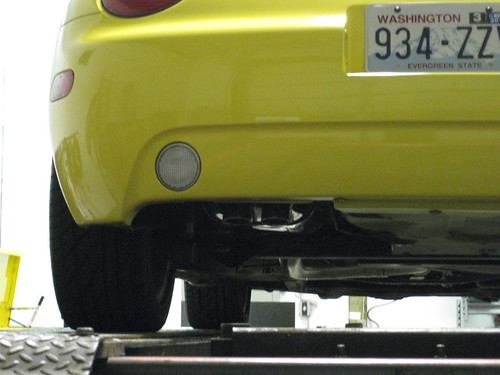Banks Intake And Exhaust Installation Review

I'll start off by saying that my testing was performed on a 6-cylinder '98 Toyota Tacoma with manual transmission. It is very important to keep in mind the vehicle that companies use to do their testing. They will many times state the best case scenario. Of course they do this, they're trying to sell, keep this in mind when you are doing research for your next performance pick me up. So if you have close to what's under the hood of a 98 Tacoma that has 150,000 miles on it, then your ride is close to the condition as mine.
My goal was to find a system that came with both an intake and exhaust setup because I knew eventually that I wanted both, and I wanted to stay true to one company because I truly believe that if you go with one company, that they custom fit each part to work well together. I have seen several kits out there that are mismatched with different brands, and I have seen some funky fits under the hood.
My first step was to work on the intake. I wanted to measure the improvement of each individual upgrade, then measure the difference with both upgrades. I haven't read anywhere about anyone measuring the total improvement and seeing if each individual improvement equaled the total improvement or if more gains are received with both paired up.
The intake in my Tacoma was quite easy to remove, just a few brackets and all were laid out pretty clearly both in my owner's manual as well as the install manual provided in the Banks package that I used. I held on to my old parts from the filthy old intake (my truck does have 150,000 miles) just in case I need them in the future. The Banks air intake kit had all the clamps that I needed, so the new air flow was nice and tight. From the looks of how it fit near the rest of my engine parts, it looked like air flow would be more free, less restricted, and smoother, but I had to start it up to see the real difference. It sure looks nice under the hood too :)
I started it up with my fingers crossed because I'm not the most tech savvy with their vehicle, but it started out great and I could hear more power out of the tone of accelerating my gas pedal right away. The RPM's had a good boost to them. I took my test drive down my neighborhood street and onto the 5 freeway, roadways that I drive on a daily basis. I couldn't get over the tone and kept on wanting to smash the gas pedal down. I was able to get to 5th quicker and it run at top speed level on the freeway a bit more freely, not a huge difference by any means, but noticeable improvement. I measured the MPG for this drive before the intake and after performing the test, I was averaging a 1.5% on MPG. Not huge, but great to see because along with the improved power feeling, my engine was doing its job easier because of the improved air flow.
The next step was to remove the intake and put on the original one...wasn't too tough because I had just swapped it out earlier. I installed the Banks Monster Exhaust with 2 buddies of mine, it took several hours on a saturday. I would recommend doing the intake first in a test like this because they are easier to swap in and out when compared to an exhaust system, for sure.
So the exhaust individually was tested and the tone was exactly what I wanted. It almost had a diesel throaty tone, coming out of my Tacoma! Finally sounds like I wish it would when I was in high school. It also felt smooth at top speeds and went through each gear with ease.
The final test consisted of both mods at the same time. My intuition was correct on this one. For the overall feel, tone, RPM ticker, MPG boost of 3.3, I truly believe that you receive more returns by paring up two mods like an intake and exhaust upgrade. It does cost money and they don't come for free, but if your driving experience and appearance are important to you, I would recommend looking into pairing mods together instead of going for individuals.
No comments:
Post a Comment